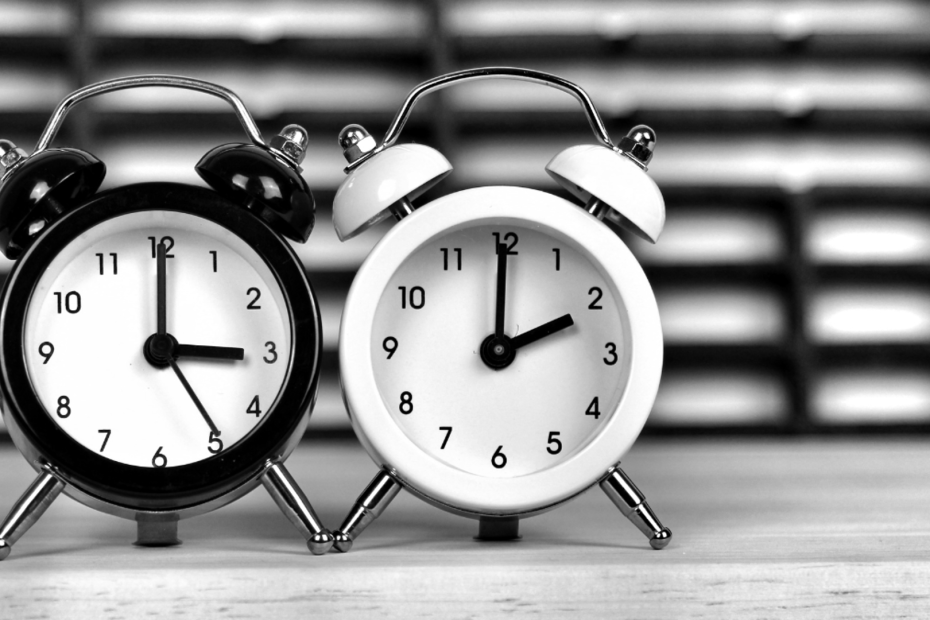Thursday, October 24, 2024, 11:04
This weekend the time changes. Specifically, on Sunday, October 27. That day, in the early morning, the clocks are turned back one hour, marking the end of summer time and the beginning of standard or winter time. At 03:00 am the clocks are adjusted to read 02:00 am, thus gaining an extra hour of sleep. This action has consequences on our body and there are ways to better adapt to the new winter time.
Every year in spring and fall, millions of people around the world set their watches one hour ahead or back, following daylight saving time or winter time, respectively. This time change, which seeks to make better use of natural light and save energy, has a direct impact on our physical and mental health. But do we really know its consequences?
Despite its positive intention, the time change affects our biological clock, also known as our circadian rhythm. This internal system regulates our sleep-wake cycle, as well as other physiological processes such as digestion and hormone release. Any sudden alteration in these rhythms can have repercussions on health.
Health consequences of time change
-
1
Sleep disturbance. One of the most immediate effects of the time change is the interruption in the sleep cycle. Going forward or back an hour may seem insignificant, but for the body it represents a delay that affects the quality of rest. This can cause temporary insomnia, daytime sleepiness, and difficulty concentrating. According to studies, complete adaptation can take several days or even weeks, depending on the person.
-
2
Increased risk of cardiovascular problems. Various research has shown that the days after the time change, particularly in spring when it is moved forward one hour, there is an increase in the incidence of heart attacks and strokes. Partial sleep deprivation and the stress of adjusting to a new schedule could be triggering factors. A 2014 study published in Open Heart found that the risk of heart attack increases by 24% in the first few days after setting the clock forward in spring.
-
3
Affected mood and mental health. Changing natural light patterns can also influence mood. People who are already prone to affective disorders, such as depression or seasonal affective disorder (SAD), may see their condition worsen. In the fall, when it moves back an hour and evenings become darker, reduced exposure to sunlight can reduce levels of serotonin, a hormone linked to well-being, contributing to feelings of sadness or lethargy.
-
4
Impact on safety and productivity. The time change not only affects physical health, but also has practical consequences. Studies have shown that in the days after the spring time change, traffic accidents increase due to lack of sleep and accumulated fatigue. Likewise, in work environments, productivity levels tend to decrease, and errors tend to be more common.
Is it worth keeping the time change?
As research into the effects of daylight saving time continues to reveal its negative health impacts, some governments are reconsidering its usefulness. In Europe, for example, the European Commission proposed in 2018 to eliminate time change, allowing each country to choose whether it wants to maintain summer or winter time permanently. Meanwhile, in some US states, the idea of abolishing this practice has also been debated.
Energy savings, one of the main arguments in favor of changing the time, has also been questioned. In a world where energy consumption is more related to the use of electronic devices and HVAC systems than to natural light, the benefits appear to be minimal.
Tips to mitigate the effects of time change
Although the debate about eliminating the time change continues, for now, the reality is that millions of people will have to continue adapting to these changes twice a year. Here are some tips to reduce its impact on health:
Prepare your body in advance: Adjust your sleep schedule gradually a few days before the time change. Go to bed and get up 15 minutes earlier or later each day.
Take care of your exposure to light: Make the most of natural light during the day and avoid using bright screens before going to sleep to facilitate the adaptation of your biological clock.
Maintain a consistent sleep routine: Try to go to bed and wake up at the same time every day, even on weekends, to keep your circadian cycle stable.
Exercise regularly: Physical exercise, especially outdoors, helps regulate sleep and improves mood.
Avoid heavy meals and caffeine close to bedtime: These can interfere with the quality of your sleep, especially during the adjustment period.
The concept of time changing dates back to the 18th century, when Benjamin Franklin first proposed the idea of advancing clocks to save candles. However, it was during the First World War when it was first officially implemented to reduce energy consumption during the summer months. Today, many countries continue with this practice, although its usefulness is increasingly debated due to advances in technology and the change in our energy consumption patterns.
This time change for summer began to become widespread in the 1970s after the first oil crisis and was applied as a directive for the first time in 1981 with a duration of four years. However, in 2001, the European Parliament and the European Council approved Directive 2000/84/EC, which applies the time change twice a year indefinitely. At least until now.
